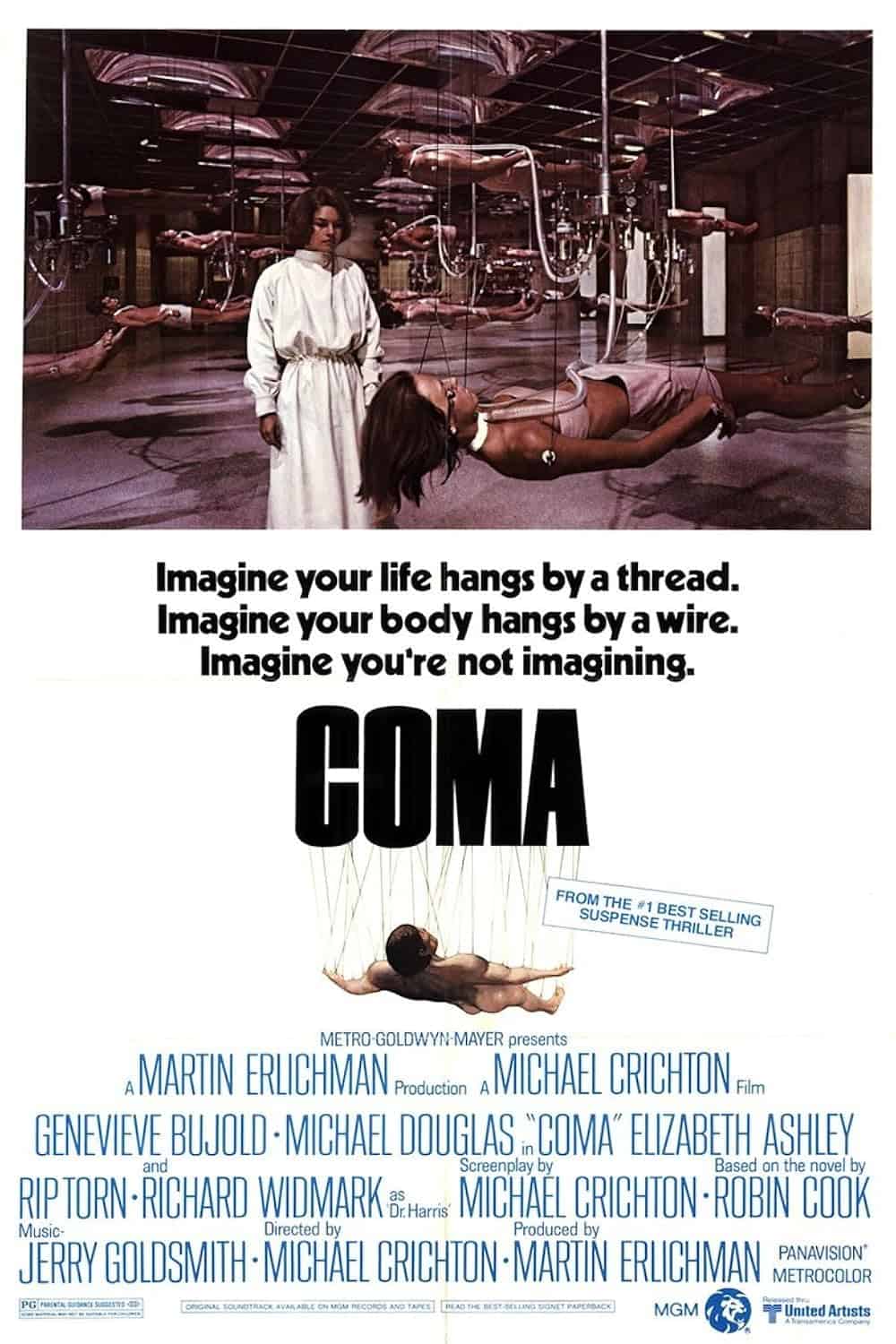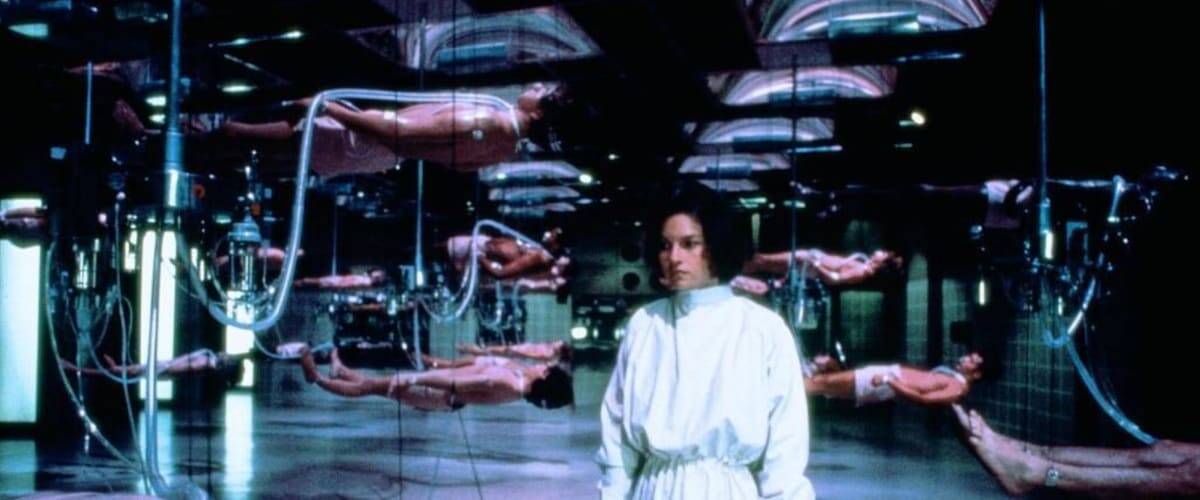Coma

Recap
After the death of a friend, a surgical resident at Boston Memorial gets pulled into a conspiracy of murder and greed.
Review
Dr. Susan Wheeler (Geneviève Bujold), a surgical resident at Boston Memorial Hospital, grows suspicious after her best friend becomes brain dead during a simple surgery. While investigating she is surprised to learn that ten such patients have fallen victim while all having simple procedures. Her colleague and boyfriend, Dr. Mark Bellows (Michael Douglas), initially dismisses her concerns as paranoia, but Wheeler persists. Her investigation uncovers a disturbing conspiracy: patients are being intentionally placed into comas and transferred to the Jefferson Institute, a seemingly state-of-the-art care facility that is actually a front for a much darker purpose. Wheeler must fight both professional skepticism and mortal danger as she races to expose the truth before becoming the next victim. The cast also features Richard Widmark as Dr. George Harris, the hospital’s powerful Chief of Surgery, and Rip Torn as Dr. George.

Directed and written by Michael Crichton, adapting Robin Cook’s 1977 novel, Coma was released on January 27, 1978. Produced on a modest budget, the film went on to gross around $50 million worldwide, making it a box office success. Critical response was mixed but leaned positive: The New York Times described it as “a taut, chilling thriller that plays on our deepest medical anxieties,” while Variety noted it was “slickly made but too clinical for its own good.” Roger Ebert awarded it three out of four stars, writing, “It’s effective in the moment, but you may feel manipulated once the tension breaks.” Over time, the movie has been regarded as one of the defining medical thrillers of its era, known for combining science-based realism with suspense. Michael Crichton, who had trained as a physician at Harvard Medical School before turning to writing and filmmaking, was drawn to Cook’s novel because of its clinical precision and the ethical questions it raised about medicine and technology. Crichton used his medical background to bring authenticity to the hospital settings and procedures, even filming many sequences in real Boston-area hospitals to heighten realism. The Jefferson Institute’s stark imagery, with rows of suspended comatose patients, became some of the film’s most haunting visuals. Geneviève Bujold was cast in the lead partly because Crichton wanted a strong, intelligent heroine who would stand out in a male-dominated medical world. The film’s blend of science, conspiracy, and suspense foreshadowed Crichton’s later success with Jurassic Park and ER, cementing Coma as an early milestone in his career as both doctor and storyteller.

I remember when this movie came out, and the hype over how good it was. My mother had read the book and enjoyed the film. I was only about 8 or 9 the first time I tried to watch it and honestly found it boring, but years later, as an adult, I think it is a great suspense thriller with some great visuals and a good story. The performances are strong, and the dialogue is well written. The original music by Jerry Goldsmith masterfully emphasis the gravitas of each scene. Watching this film from a modern perspective I realize that there are themes and issues we are still grappling with today. The first is sexual inequality. In an early scene between Susan and Mark, they argue as Susan believes that Mark is expecting her to work the same job, with the same hours and the same issues, and still come home, get him a beer and cook dinner. And in a later scene where Susan is being reprimanded, it is mentioned that the only reason she still has a job is because she is a woman. In addition to sexual inequality, we see greed and how it affects the for-profit medical system. Overall, this was a well written, well directed and well-acted film with some great visuals and suspenseful plot.
Final Thoughts
This is the second review in a series examining the movies of Michael Crichton.
Psychotronic Cinemavision: Coma
- Writing - 9/109/10
- Storyline - 9/109/10
- Acting - 8/108/10
- Music - 10/1010/10
- Production - 9/109/10





